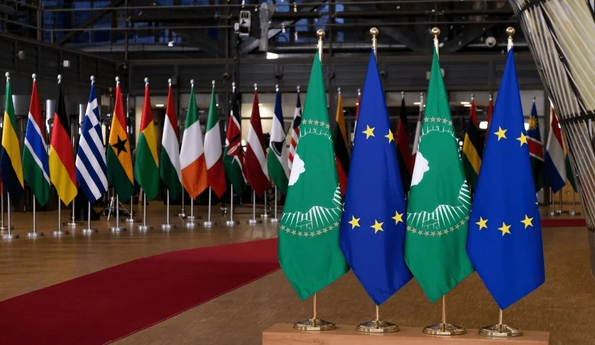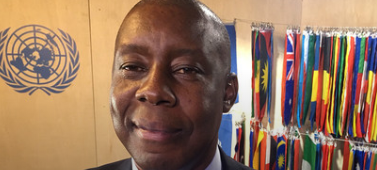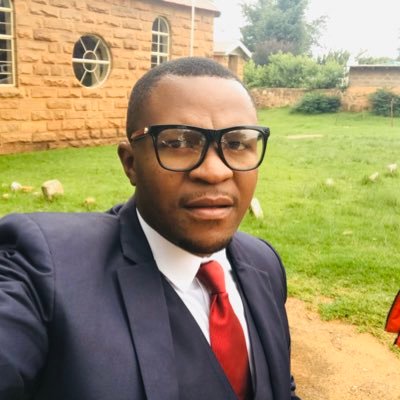Theko Tlebere
This week, the African Union (AU) is holding elections for commissioners in Addis Ababa, Ethiopia. These elections are crucial as they determine key leadership positions within the AU Commission, influencing the continent’s development, security, and governance policies. However, a significant issue has arisen: Lesotho is noticeably absent from the list of shortlisted candidates, while South Africa has secured two nominations. This raises important questions: Has Lesotho missed an opportunity following Joshua Phoho Setipa’s unsuccessful bid for Commonwealth Secretary-General? Are there no qualified Basotho capable of competing? What actions can be taken to change this situation?
Setipa’s candidacy for the Commonwealth Secretary-General was a bold move aimed at increasing Lesotho’s visibility on the global stage. However, the country seems to have stepped back from pursuing leadership roles in international arenas following this campaign. While South Africa continues to promote its candidates for influential AU positions, Lesotho’s absence is concerning. This situation casts doubt on the country’s strategy for advancing its human capital both continentally and internationally. Had Lesotho fielded even a candidate for a lesser-known position, it could have gained valuable experience in AU politics and leadership. The lack of representation suggests either an inability to identify and support capable candidates or a reluctance to engage at the highest levels of African governance. This passivity could have long-lasting repercussions for Lesotho’s influence in AU decision-making processes.
The Minister of Foreign Affairs and International Relations plays a crucial role in ensuring that Lesotho is represented in continental leadership. The ministry must take proactive steps to identify and endorse qualified Basotho for positions within the AU, as well as engage in strategic lobbying and diplomatic negotiations to support these candidates. Ensuring that Lesotho has a visible presence on AU platforms involves forming alliances with influential stakeholders and advocating vigorously for fair representation. Without this active involvement, Lesotho risks further marginalisation in continental governance, which could have long-term negative consequences for the nation’s interests.
It is hard to believe that Lesotho lacks qualified professionals who could fill leadership roles within the AU. The country has produced a wealth of diplomats, economists, legal experts, and development specialists who possess considerable experience and expertise. Thus, the challenge that Lesotho faces appears to stem not from a shortage of skilled individuals but rather from a lack of political will and strategic lobbying efforts. For instance, South Africa, through its Ministry of International Relations and Cooperation, takes deliberate steps to support its citizens in securing leadership positions within international organisations. In stark contrast, Lesotho has not demonstrated a comparable level of organisation. The process of nominating candidates necessitates substantial government support, robust networking, and effective regional diplomacy, three areas where Lesotho seems to be falling short.
Without a candidate of its own in the race, Lesotho may find itself in the position of endorsing nominees from other countries. While this could cultivate diplomatic goodwill, it does not contribute to enhancing Lesotho’s representation within continental decision-making structures. Supporting South Africa’s nominees might help strengthen bilateral relations with its more influential neighbour; however, this approach does not guarantee tangible benefits for Lesotho unless it can secure specific concessions. Such concessions could include senior advisory roles or technical positions for Basotho professionals within the AU Commission, which would provide meaningful opportunities for participation in governance.
Even in the absence of a candidate for commissioner roles, Lesotho still has the potential to wield influence within the AU by aiming for mid-level and technical positions in the AU Commission, the Peace and Security Council, and other AU organs. Nevertheless, achieving this position of influence requires proactive engagement from Lesotho’s Permanent Mission to the AU and direct government intervention in the career placements of qualified professionals. Ambassador Ntšiuoa Sekete, Lesotho’s representative to the AU, plays an essential role in advocating for Basotho professionals for key positions, forging crucial alliances with influential stakeholders within the AU, and promoting a structured approach for future AU leadership nominations. By prioritising these efforts, Lesotho can work toward ensuring its rightful place in continental leadership and decision-making processes.
Lesotho’s absence in this year’s AU elections should serve as a wake-up call for the nation. To secure a meaningful voice in shaping Africa’s future, it is imperative for the country to actively nurture and position its talent for leadership roles. This involves a concerted effort to encourage young Basotho professionals, academics, and diplomats to engage deeply with AU affairs. They should be motivated to participate in policy discussions, seek out opportunities for collaboration, and pursue employment within AU institutions.
It is not too late to change course and reclaim a seat at the table. With strategic planning, dedicated active lobbying, and a firm commitment from the government, Lesotho can foster a robust pipeline of candidates for future AU elections. This endeavour is not merely about participation; it is about empowering the next generation of Basotho leaders to step forward and take on the responsibility of continental leadership. They should not shy away from the chance to influence and shape Africa’s policies from within the AU framework.
As the AU elections occur, this moment should invoke significant reflection for Lesotho. The pertinent question extends beyond our current absence; it probes into how we can ensure our representation in tomorrow’s decisions and discussions. The urgency of this reflection cannot be overstated, as the choices made now will profoundly impact the future trajectory of Lesotho within the African continent. The future is NOW!
Summary
- The lack of representation suggests either an inability to identify and support capable candidates or a reluctance to engage at the highest levels of African governance.
- Even in the absence of a candidate for commissioner roles, Lesotho still has the potential to wield influence within the AU by aiming for mid-level and technical positions in the AU Commission, the Peace and Security Council, and other AU organs.
- Ambassador Ntšiuoa Sekete, Lesotho’s representative to the AU, plays an essential role in advocating for Basotho professionals for key positions, forging crucial alliances with influential stakeholders within the AU, and promoting a structured approach for future AU leadership nominations.

Your Trusted Source for News and Insights in Lesotho!
At Newsday Media, we are passionate about delivering accurate, timely, and engaging news and multimedia content to our diverse audience. Founded with the vision of revolutionizing the media landscape in Lesotho, we have grown into a leading hybrid media company that blends traditional journalism with innovative digital platforms.









